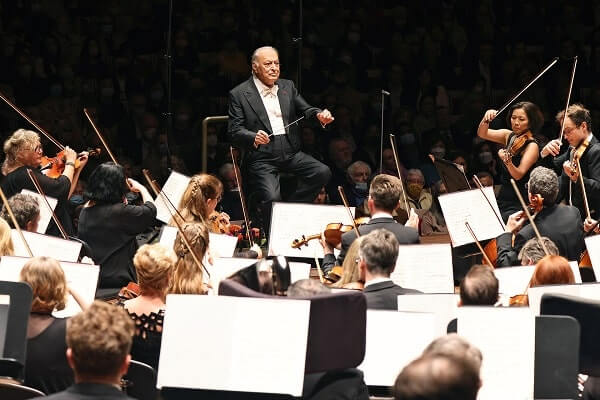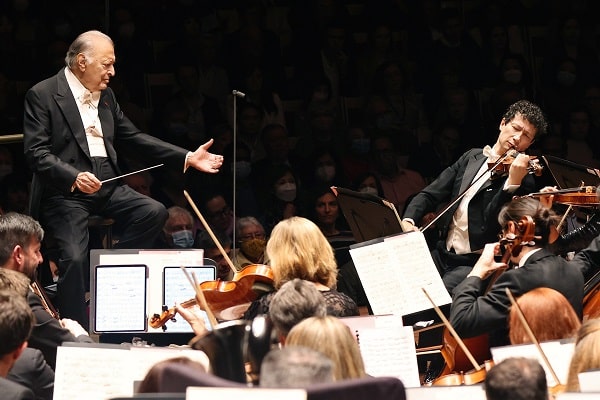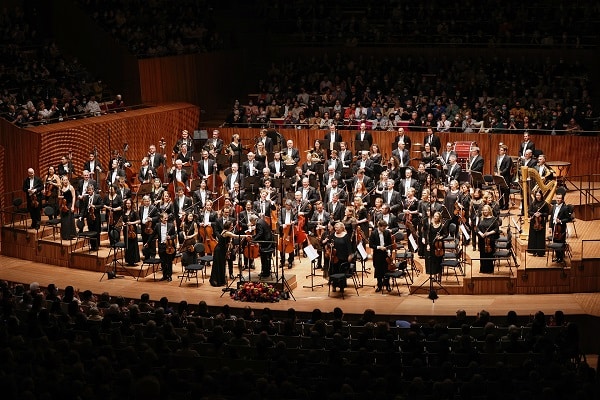It was a special treat to see Zubin Mehta flick that magic baton to command the stage.
After a near decade away from the helm of the Australian World Orchestra, Mo. Mehta as he is fondly known, returned to Hamer Hall in Melbourne and the Sydney Opera House for two evenings of musical splendour.
This time round, he was handling a personal favourite, German composer Richard Strauss (1864 – 1949).
Dubbed the world’s greatest interpreter of Strauss’s expositions, Mehta, 86, is renowned for his conductorship, composure and control, and has led orchestras globally.
Despite his age, it was wonderful to see the maestro still enigmatic and capturing all corners of his orchestra to ensure harmony. With the simplest of gestures, Mehta had the capacity to regulate the group’s collective expression, tone and timing.
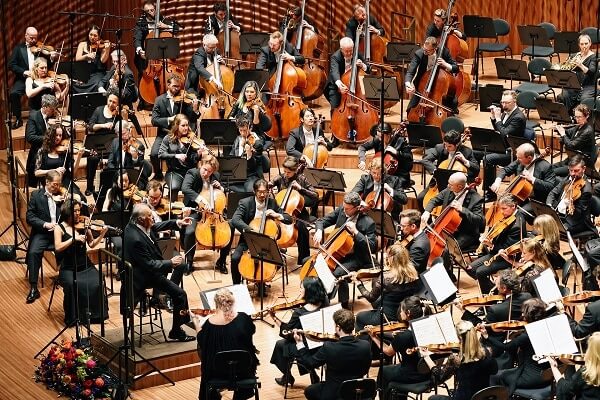
Comprising musicians from around the globe such as the London Symphony Orchestra, Berlin Philharmonic, Los Angeles Philharmonic, and Australia’s own outstanding ensembles, Mehta’s orchestra showcased incredible resonance and impeccable timing in its performance.
Together with Alexander Briger AO, founder and artistic director of the AWO, Mehta, whose love for conductorship was inspired by Strauss, took the challenge to set a grand event to commemorate his appreciation of the composer’s finest works.
This time round, the works presented included dramatic late romantic and early modern compositions: Don Juan, Till Eulenspiegels Lustige Streiche and Ein Heldenleben.
“In truth, I became a conductor because deep down I wanted to conduct Richard Strauss’s tone poems,” Mehta has said famously.
READ MORE: Brisbane artist Naavikaran sings of ‘gender liberation and immigration’
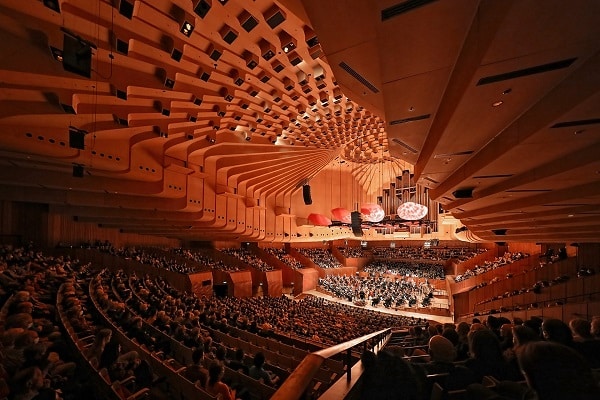
For those untrained in classical musicianship, a tone or symphonic poem (pioneered by Hungarian piano virtuoso, Franz Liszt (1811 – 1886)) is a single continuous movement inspired from a non-musical source such as a poem, short-story or novel. Highly descriptive works, tone poems are created to inspire the listener by incorporating realism into music.
It is fascinating how Strauss composed his works and left much of the interpretation to the musicians and conductor. Strauss’s works were developed to push the boundaries of musical form and take the listener on a journey through their imagination. There are many ways to tell a story, and doing so through music offers the orchestra a great deal of flexibility under the guidance of its conductor.
Mehta’s connection with Strauss developed due to his love for interpreting complex pieces with story-telling elements. In his autobiography, Mehta recalls listening to Strauss on his family’s gramophone as a child and thinking to himself about how one day he would lead an orchestra and explore Strauss’s compositions.
Don Juan (Op. 40) is based on a play, Don Juan’s Ende (Don Juan’s End), which is derived from an unfinished 1844 retelling by poet Nikolaus Lenau. The author explores a ladies’ man, devoid of morality, looking for perfect love through countless attempts but failing repeatedly. After various efforts, he despairingly submits himself to a duel and ultimately loses the battle.
Mehta captures this love tale turned unfortunate demise by taking the audience through various episodes in the movement. The verses in the story are emphasised by the orchestra with romance, despair, anger and exhaustion themes clear in their performance. As a trained classical pianist, I noticed Mehta’s ability to control the orchestra and ensure that they appreciated the tonal subtleties throughout the story to emphasise each scene.
Till Eulenspiegels Lustige Streiche (Op. 28) (Till Eulenspiegel’s Merry Pranks) depicts the misadventures and pranks of the medieval German peasant folk hero, Till Eulenspiegel. The composition has several movements with a cheeky and light-hearted feel, referencing the prankster and his trickster behaviour. With an action-packed score, Mehta helps the audience understand Strauss’s masterful and sophisticated merging of rondo and sonata forms. This is where the composition builds up before cascading downwards through audacious musical elements with impressive form, content, technique and colour.
Ein Heldenleben (Op. 40) or A Hero’s Life, is agreed to be Strauss’s musical autobiography. It captures various quotations from Strauss’s earlier works including Don Juan and Till Eulenspiegel. Taking the audience through the adventures of a hero from inception through to retirement, the piece lasts about fifty minutes, and is performed in six movements without breaks to capture the hero’s life events including his enemies, companions, love and battles, except for a dramatic grand pause at the end of the first movement to mark the hero’s wait for the world’s response.
With an exceptional violin solo by AWO’s concertmaster, this grand composition pushed the orchestra to its limits in terms of volume and virtuosity. All sections of the orchestra were involved in delivering sumptuous tunes with expressive, compositional voice, and virtuoso use of orchestration to offer a wealth of vividness and drama, instrumental colour and mood.
These three masterful compositions do certainly require a mature and experience conductor. Born and raised in Bombay, Mehta, a Zoroastrian and Parsee, was keen to explore musicianship as a young boy. With paternal musical influence, and despite his mother’s wish to study medicine, he explored music in Vienna.
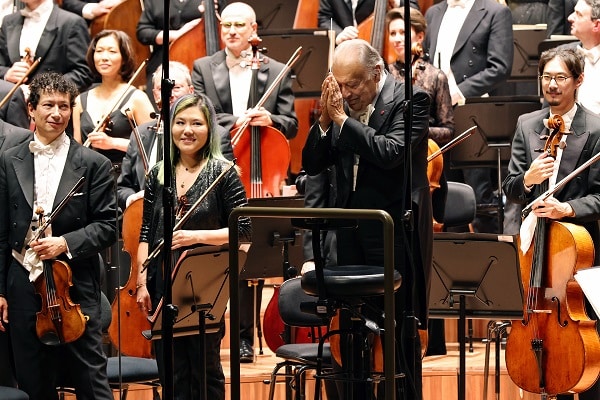
With a penchant for conducting, Mehta showed commitment to the craft by forming his own orchestra while a student and conducting his first concert at a refugee camp near Vienna. From that day, Mehta resolved his devotion to conducting. Since then, he has held music directorships with the Montreal Symphony Orchestra, Los Angeles Philharmonic and the Israel Philharmonic Orchestra.
Together with his brother Zarin, Mehta co-founded in 1995 the Mehli Mehta Music Foundation in Bombay in honour of their father. The not-for-profit continues to train the youth by promoting western classical music through the presentation of high-quality concerts and music education.
Mehta’s fervour, commitment to music and exemplary conductorship brilliance has surely maintained Australia’s appreciation of this engaged and worldly experienced maestro. We hope he continues to hold the baton and lead incredible orchestras for as long as possible.
READ MORE: Melbourne musician Ashwarya is making her own rules



